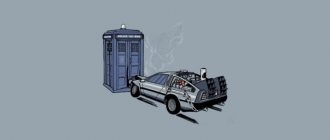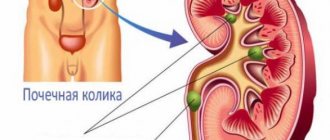What is intuition
This is Intuition / B. G. Meshcheryakov, V. P. Zinchenko / Large psychological dictionary - the ability to quickly understand or learn something using feelings without the need to think or apply logic.
Intuition works when you have a bad feeling or when you are faced with a difficult choice and accidentally make the right decision. Typically, intuition is subjective, manifests itself spontaneously and, as it may seem, regardless of your opinion. The Lifehacker Telegram channel contains only the best texts about technology, relationships, sports, cinema and much more. Subscribe!
Our Pinterest contains only the best texts about relationships, sports, cinema, health and much more. Subscribe!
However, it occurs more often than you might think. For example, the survey by M. Maidique. Decoding intuition for more effective decision‑making / Harvard Business Review of 36 executives showed that 85% of them rely on it when making decisions. There is also a study by R. Nalliah. Clinical decision making – choosing between intuition, experience and scientific evidence / British Dental Journal that dentists use instinct even more often than they should.
§ 4. Forms of intuition
Today, there are many disparate approaches to determining the form in which intuition manifests itself, not included in any system.
4.1. From the point of view of the subject of perception itself, these are subjective and objective forms
Subjective is the perception of unconscious mental data of subjective origin. The objective form is the subliminal perception of factual data emanating from an object, accompanied by subliminal thoughts and feelings.
4.2. Sensual and intellectual forms of intuition
A person’s ability to distinguish and identify objects in the surrounding world and their simple combinations is intuitive. The classic intuitive idea of objects is that there are things, properties, and relations. First of all, we mean objects that are sensually perceived either in the surrounding reality or in the reality of the inner world of images, emotions, desires, etc.
Thus, the simplest form of intuition, which plays an important role in the initial stages of the creative [143] process, is sensory contemplation, or spatial intuition. (As defined by mathematicians, “categorical”). With its help, initial geometric concepts about figures and bodies are formed. The first simple judgments of arithmetic have the same sensory-practical and intuitive character. All elementary arithmetic relations, such as “5+7=12,” are perceived as absolutely reliable. Real, initial confidence in the truth of such statements does not come from evidence (although they are possible in principle), but from the fact that these statements are elementary objective-practical statements, facts, given objectively and practically.
Conclusions are also taken as immediate evidence, something unconditionally given. Logical analysis takes into account but never rejects this kind of statement. This type of intuition of mathematicians is called “objective” or “praxeological”.
A somewhat peculiar type of intuition is the transfer of features that have general significance for a certain class of objects to new objects of this class. In mathematics it is called “empirical” intuition. In logical terms, empirical intuition is a hidden conclusion from analogy, and it has no more validity than analogy in general. The conclusions obtained in this way are tested using logical analysis, on the basis of which they can be rejected.
Confidence in the results of sensory intuition was undermined after a large number of concepts and theories arose in mathematics that contradict everyday sensory intuition. The discovery of continuous [144] curves that do not have derivatives at any point, the emergence of new, non-Euclidean geometries, the results of which at first seemed not only contrary to ordinary common sense, but also unimaginable from the point of view of intuition based on Euclidean concepts, the concept of actual infinity , conceivable by analogy with finite sets, etc. - all this gave rise to a deep distrust of sensory intuition in mathematics.
It is now generally accepted that in scientific creativity the decisive role belongs to intellectual intuition, which, however, is not opposed to the analytical, logical development of new ideas, but goes hand in hand with it.
Intellectual intuition does not rely at all on sensations and perceptions, even in their idealized form.
In mathematical reasoning, primarily in elementary discursive transitions, i.e. in conclusions “from the definition”, as well as in conclusions on logical schemes of transitivity, contraposition, etc., without an explicit formulation of these schemes, there is a so-called “logical” intuition. Logical intuition (reliability) also refers to stable unrealizable elements of mathematical reasoning.
Based on the division of situations of intuitive clarity, two main types of intuition are distinguished: apodictic, the results of which are not subject to revision from the point of view of logic, and assertoric, which has heuristic significance and is subject to logical analysis. [145]
One of the most productive forms of intellectual intuition is creative imagination, with the help of which new concepts are created and new hypotheses are formed. An intuitive hypothesis does not follow logically from facts and relies mainly on creative imagination.
In other words, intuition in mathematical creativity acts not only as a holistic, unifying idea, to a certain extent completing the cycle of research, but also as a guess that needs further development and verification using deductive, evidential methods of reasoning.
4.3. Concrete and abstract forms of intuition
Concrete intuition is the perception of the factual side of things, abstract intuition is the perception of ideal connections.
4.4. Conceptual and eidetic forms of intuition
The conceptual one forms new concepts on the basis of previously existing visual images, and the eidetic one builds new visual images on the basis of previously existing concepts.
4.5. Functions of intuition
The primary function of intuition is the simple transmission of images or visual representations of relationships and circumstances that, with the help of other functions, are either completely unattainable or can be achieved “by long, roundabout paths.”
Intuition can act as an auxiliary tool that acts automatically when no others are able to open a way out of the situation.
How does intuition work and why does the brain need it?
Today, science considers intuition to be a complex instrument of consciousness, which is born from the interaction of the senses, mind and experience and plays a significant role in cognition and decision making.
Throughout our lives, the brain notices patterns, connects facts and phenomena, and creates patterns based on them. Most often this happens unintentionally and unconsciously.
Intuition works on such associations. It provides subconscious emotional information before we make a conscious decision, and helps us avoid wasting unnecessary resources on thinking. This is how we learn to predict a variety of things, including the consequences of our actions and the behavior of other people.
In fact, this is a different M. Pigliucci. Answers for Aristotle: How Science and Philosophy Can Lead Us to A More Meaningful Life is a method of knowing and thinking that is similar to instinct. Although intuition is not always accurate, it works very quickly and does not require much concentration.
At the same time, we are characterized by M. Hutson. 8 Truths About Intuition / Psychology Today both giving intuitive beliefs more weight than they should and undervaluing them. For example, we often trust our first impression, which gives rise to prejudice. Or we abandon the initial correct decision, considering it spontaneous, in favor of an incorrect one.
Lecture 3. Cognition and types of knowledge
An integral component of a worldview is knowledge - the result of human cognitive activity; form of existence and systematization of the results of human cognitive activity. Cognition is the process of obtaining new knowledge, reflecting objective reality in the human mind. Cognition is a special type of activity that presupposes the presence of a subject of cognition (a person, a team, the whole society) and an object of cognition (phenomena and objects of reality, processes, society, the internal state of a person, etc.). An example of cognitive activity can be the research work of the famous Polish astronomer N. Copernicus - he discovered the heliocentric system (the movement of the Earth around the Sun, and not vice versa, as previously thought). The result of his activities was knowledge that is still the basis of astronomy. Studying at school is also a cognitive activity, as students acquire new knowledge.
There are still debates in science regarding the possibility of exhaustive (complete) knowledge of the world. We can distinguish three directions in philosophical science that interpret the knowability of the world differently: - agnosticism - a philosophical direction that denies the possibility of complete knowledge of the world. Agnostics believe that knowledge does not provide reliable information about the world. There are many aspects of the universe that simply cannot be known - a person does not have the ability to know them; - skepticism is a philosophical direction that does not deny the fundamental possibility of knowing the world, but expresses doubt that all knowledge about the world is reliable. Skeptics note that it is possible to know the world, but it is extremely difficult: often a person, while carrying out knowledge, comes to error without realizing it; — Gnosticism (optimism) is a philosophical direction that affirms the fundamental knowability of the world, noting that the limit of knowledge at present is only the level of development of technology and methods of knowledge. Technology, methods, and means of knowledge will develop—the boundaries of knowledge of the world will expand. These boundaries are conditional, and they can be expanded to the limits of absolute knowledge about the world.
There are several types of cognition: 1) ordinary – this is cognition that is “woven” into a person’s life, carried out not purposefully, in the process of performing everyday actions by a person. For example, once each of us learned what “hot” was simply by touching a boiling kettle - not on purpose, not purposefully. Such knowledge is most actively carried out in childhood and adolescence; 2) mythological - this is knowledge that is based on myths and legends. A myth is a legend that figuratively tells about the creation of the world, its origin, development, gods, heroes. Such cognition is characteristic of primitive society and is also not goal-oriented. Primitive people received the bulk of their knowledge from myth, blindly believing it; 3) religious is knowledge based on religious texts, sources (Bible, Koran, etc.), it involves an emphasis on ethical issues, the meaning of life, etc. It can be either targeted or not targeted. Deeply religious people even today acquire a significant part of knowledge in the process of reading and interpreting sacred books, and try to apply this knowledge in practice - this is an example of religious knowledge; 4) artistic - knowledge, the basis of which is the reflection of objective reality in artistic images, symbols, signs. Most often, such knowledge is carried out in art. Working on a painting or looking at it, a person learns the meanings and emotions embedded in it; 5) scientific is purposeful knowledge carried out by special methods of scientific knowledge. Such cognition presupposes the acquisition and re-verification of true knowledge. Most often, scientists engage in such knowledge; 6) educational – a type of knowledge that is close in meaning to scientific knowledge. Educational cognition is also purposeful and can be carried out using certain methods of scientific cognition, but its goal is to obtain knowledge by an individual that is already known in science; personality training. At a university, students often use methods of scientific knowledge, for example, observation using a microscope, repeat the actions of scientists, and thereby obtain knowledge that has long been known in science; 7) parascientific – this is purposeful cognition, carried out seemingly by scientific methods, or by fictitious methods, similar to the actions of scientists, but not recognized by science. For example, an astrologer, when making astrological forecasts, works on a map of the starry sky, takes measurements, but the result of his knowledge is not recognized by science; Social cognition is society’s knowledge of itself, understanding of who “we” are. The result of social cognition is society’s idea of itself, its history, present situation and future. In such knowledge, the object and the subject coincide - this is society; 9) self-knowledge – a person’s knowledge of himself, his inner world, psyche, external characteristics, etc. Self-knowledge can be either purposeful or not purposeful. The most important mechanism of self-knowledge is reflection - reflection in the mind of the consequences of one’s own actions, thinking about one’s behavior. In self-knowledge, subject and object also coincide - a person knows himself.
For example, once each of us learned what “hot” was simply by touching a boiling kettle - not on purpose, not purposefully. Such knowledge is most actively carried out in childhood and adolescence; 2) mythological - this is knowledge that is based on myths and legends. A myth is a legend that figuratively tells about the creation of the world, its origin, development, gods, heroes. Such cognition is characteristic of primitive society and is also not goal-oriented. Primitive people received the bulk of their knowledge from myth, blindly believing it; 3) religious is knowledge based on religious texts, sources (Bible, Koran, etc.), it involves an emphasis on ethical issues, the meaning of life, etc. It can be either targeted or not targeted. Deeply religious people even today acquire a significant part of knowledge in the process of reading and interpreting sacred books, and try to apply this knowledge in practice - this is an example of religious knowledge; 4) artistic - knowledge, the basis of which is the reflection of objective reality in artistic images, symbols, signs. Most often, such knowledge is carried out in art. Working on a painting or looking at it, a person learns the meanings and emotions embedded in it; 5) scientific is purposeful knowledge carried out by special methods of scientific knowledge. Such cognition presupposes the acquisition and re-verification of true knowledge. Most often, scientists engage in such knowledge; 6) educational – a type of knowledge that is close in meaning to scientific knowledge. Educational cognition is also purposeful and can be carried out using certain methods of scientific cognition, but its goal is to obtain knowledge by an individual that is already known in science; personality training. At a university, students often use methods of scientific knowledge, for example, observation using a microscope, repeat the actions of scientists, and thereby obtain knowledge that has long been known in science; 7) parascientific – this is purposeful cognition, carried out seemingly by scientific methods, or by fictitious methods, similar to the actions of scientists, but not recognized by science. For example, an astrologer, when making astrological forecasts, works on a map of the starry sky, takes measurements, but the result of his knowledge is not recognized by science; Social cognition is society’s knowledge of itself, understanding of who “we” are. The result of social cognition is society’s idea of itself, its history, present situation and future. In such knowledge, the object and the subject coincide - this is society; 9) self-knowledge – a person’s knowledge of himself, his inner world, psyche, external characteristics, etc. Self-knowledge can be either purposeful or not purposeful. The most important mechanism of self-knowledge is reflection - reflection in the mind of the consequences of one’s own actions, thinking about one’s behavior. In self-knowledge, subject and object also coincide - a person knows himself.
The list of such types of cognition is open - other classifications of types of cognition can be found in educational literature.
Cognition is a contradictory, changeable process, depending on many factors. Most often, it is impossible to immediately predict the result of knowledge before receiving it.
There are forms of cognition: 1. Sensory cognition is cognition with the help of the senses - vision, touch, hearing, etc. Sensory cognition is expressed in the following forms: - sensation - reflection of individual properties of an object, phenomenon, usually in the first seconds of contact with it by the senses. Example: when a person first saw a painting, he reflected in his mind that it was large and there was a lot of red in it - these were its brightest features; — perception is a reflection of the holistic appearance of an object with its direct impact on the senses; the holistic appearance of an object that affects the senses. Perception is most often carried out during fairly prolonged contact with an object. Example: a person continues to look at the picture - every detail, artistic element. He sees what is written on it. A holistic image of this picture is formed in the human mind; — representation – preservation and reproduction in the mind of a generalized image of an object without direct contact with it by the senses; a sensory-visual image of an object stored in memory. Example: a man, after looking at the painting, left the museum. In the evening he remembered this picture; it made an impression on him. 2. Rational knowledge is knowledge with the help of reason. It is expressed in the following forms: - concept - a word, term, thought, reflecting the essential features of the object of knowledge. Example: painting. Having heard this word, a person will immediately imagine something flat, multi-colored, rectangular, designed to be placed on a wall or other vertical space; — judgment – a thought expressed in a phrase or sentence that establishes a connection between two or more concepts; a thought that affirms or denies something about an object. Example: the painting that the person was looking at is in the Russian Museum in St. Petersburg. Here we have established connections between the concepts of “picture”, “person”, “Russian Museum”; — inference – obtaining new knowledge based on the connection of two or more judgments; in other words – a conclusion. Example: the first judgment - the painting that the person was looking at is in the Russian Museum of St. Petersburg; the second judgment is that all the paintings exhibited in the Russian Museum belong to the brushes of Russian authors. Consequently, the picture that the person was looking at was created by a Russian author.
In the course of sensory cognition, a person forms a sensory-visual image of an object, while in rational cognition - abstract, generalized knowledge. There is debate in science about the significance of these forms of cognition. There are two directions in the interpretation of the significance of these forms of knowledge: - empiricism - a direction in philosophy that recognizes experience, sensory knowledge as the only reliable source of knowledge about the world. Representatives of empiricism believe that in the course of rational knowledge the truth is distorted, knowledge becomes unreliable; — rationalism is a philosophical movement that recognizes reason as the main source of knowledge.
Empiricism and rationalism are two extremes in understanding the significance of sensory and rational knowledge. In reality, these forms of knowledge cannot be opposed. It is impossible to study with the mind what has not been studied with the senses, and without rational knowledge, studying objects with the senses will not lead to deep knowledge. Knowledge is the result of the unity of sensory and rational knowledge of reality.
A peculiar form of knowledge, occupying an intermediate position between sensory and rational knowledge, is intuition - direct comprehension of the truth as a result of “insight”, sudden understanding without direct reliance on logical proof, rational thinking. Intuition uses the data of sensory knowledge, but is not it. Intuition is not rational knowledge, since reason does not directly involve logic.
In scientific knowledge, and sometimes in some other types of knowledge, levels are distinguished: - empirical level - involves the goal of collecting, describing, highlighting individual facts, recording them in order to then, at the theoretical level, obtain conclusions. - theoretical level - pursues the goal of summarizing the collected facts, exploring them, establishing patterns between them and obtaining new knowledge, drawing conclusions. Example: a biologist studies the dependence of tree height on climate. He suggests that, on average, trees in warmer climates are taller. To prove this, the scientist went to the southern regions, measured the height of 1000 trees, and wrote them down in a notebook. This was an empirical level. Further, already in the office, the biologist calculated the average height of trees in different areas, compared, and received evidence for the hypothesis - an assumption that he had made earlier. This was the theoretical level of scientific knowledge.
Let us now turn to the results of cognition - i.e. knowledge. Knowledge is the result of cognition, the content of consciousness obtained by a person in the course of active reflection and reproduction in ideas, laws, theories of objects of the real world and the relationships between them. It can also be classified into types approximately in accordance with the types of cognition. So, there are types of knowledge: - everyday (or everyday) - acquired as a result of everyday knowledge, assumes a large share of common sense, may include stereotypes that distort the truth; - mythological - knowledge of myth, belief in its truth; — religious – formed as a result of religious knowledge; — artistic – is formed as a result of reflection of objective reality in the consciousness through artistic images; - scientific - holistic knowledge about the universe, or about individual processes and objects of reality, obtained as a result of scientific or educational knowledge; - parascientific - “pseudo-scientific” knowledge, not recognized by modern science - astrology, alchemy, futurology (“science” of the future), etc.
Video lecture on the topic:
You can share the lecture material on social networks:
Should you trust your intuition?
Scientists say Lufityanto G., Donkin C., Pearson J. Measuring Intuition: Nonconscious Emotional Information Boosts Decision Accuracy and Confidence / Psychological science that intuition can help you make a decision that you will not doubt later.
For example, Dutch psychologists in 2006 concluded that intuition works well when many factors need to be taken into account. They found out Dijksterhuis A., Bos MW, Nordgren LF, et al. On making the right choice: the deliberation‑without‑attention effect / Science (New York, NY) that those who used their gut when buying a car or home were 2.5 times more likely to be satisfied with the purchase than those who spent a long time comparing advantages and disadvantages. Experts have called intuition “thinking without attention.”
But this does not mean at all that you need to abandon rational thinking.
Intuition may be wrong as it creates M. Pigliucci. Answers for Aristotle: How Science and Philosophy Can Lead Us to a More Meaningful Life are only preliminary hypotheses that need to be tested. The Sixth Sense relies heavily on emotion, and its predictions are often subjective. For example, our instincts can be clouded by negative childhood experiences, complexes, fears, and mental trauma. In addition, intuition is unlikely to be useful in areas in which a person does not understand. Or in poorly predictable areas, such as the global economy.
The accuracy of intuition depends on many things, and everyone must decide for themselves whether to rely on it. Considered M. pigliucci. Answers for Aristotle: How Science and Philosophy Can Lead Us to a More Meaningful Life, that the instinct gives the most accurate clues when we allow it to work freely: we do not reason and act “on autopilot.”
§ 3. The nature of intuition
The work of creative intuition and the achievement of insight are presented as the most mysterious phenomena, and since intuition is essentially an unconscious process, it is difficult not only to logical analysis, but also to verbal description.
Illuminated by the light of reason, intuition appears in the form of a wait-and-see attitude, contemplation and peering, and always only the subsequent result can establish how much was “looked” at the object and how much was actually embedded in it.
All creative problems can be roughly divided into two classes: those solved by means of arbitrary logical search and those whose solution process does not fit into the logic of the existing knowledge system and therefore is fundamentally not amenable to algorithmization. Then in the first case, if the previous phase does not provide adequate ready-made logical programs, intuition naturally comes into play. In addition, an intuitive decision can be understood as one of the phases in the mechanism of creativity, following an arbitrary, logical search, and requiring subsequent verbalization, and possibly formalization of the intuitive decision.
Today there is still no generally accepted concept that would make it possible to consider and analyze the mechanism of action of intuition, but separate approaches can be identified. [140]
1. The sphere of intuition is the “human superconsciousness”, achieved by a “breakthrough” through the mental shell into other layers. To explain the nature of superconsciousness, the concept of engrams (traces in the subject’s memory) is used, the transformation and recombination of which constitute the neurophysiological basis of superconsciousness. Operating with engrams and recombining them, the brain generates unprecedented combinations of previous impressions. The engram fund - and this is the external world, overturned into the human body - ensures relative autonomy and freedom of the latter, however, the inability to go beyond the engrams sets the limit to this freedom.
2. An explanation of the mechanism of intuition is sought in the “world of the subconscious,” in which the entire history and prehistory of processes that practically do not manifest themselves is accumulated, and the selection of various decision options is directed by subconscious attitudes. Due to the fact that intuition, spontaneity, and free movement of the mind play a role at the selection stage, the presence of unpredictable and random elements is possible. The effectiveness of the solution is enhanced by special motivation, moreover, when ineffective methods for solving the problem have been exhausted and the less automated the method of action is, and the search dominant has not yet died out, the greater the chances of solving the problem.
Intuition is also understood as a manifestation of the subdominant level of action organization, without strictly tying it to the unconscious level.
3. From the point of view of synergetics, the mechanism of intuition can be represented as a mechanism of self-organization, self-construction of visual and mental images, ideas, concepts, thoughts.
4. J. Piaget considered intuition as figurative objective thinking, characterizing mainly the prelogical stage of development, believing, like [141] K.G. Jung that with age the role of intuition decreases somewhat and it gives way to a more social type of thinking - logical. Jung called intuition the maternal soil from which thinking and feeling grow as rational functions.
5. Thinking and intuition are two areas on the scale of awareness inherent in the process of inference. Thus, intuition is likened to thinking - it is an unconscious inference, it is a process of generating solutions that occurs unconsciously. A person may not be aware of either some part of the process or the entire process.
6. Based on the mechanism of operation of both hemispheres of the human brain, R.M. Granovskaya explains the psychophysiological mechanism of intuition. This process includes several successive stages of alternating dominance of both hemispheres. In the case of dominance of the left, the results of mental activity can be realized and “verbalized.” In the opposite case, the thought process, developing in the subconscious, is not realized and is not verbalized. All higher mental processes occurring in both hemispheres have significant differences, however, information processing operations inherent in the right and left hemispheres are not equally studied by psychology.
A significant difference in the work of the hemispheres is that right-sided perception is figurative perception, episodic and autobiographical memory, situational generalization, continuous and multi-valued logic. When the left hemisphere works, conceptual perception, categorical memory, two-valued logic, and classification by attributes are activated.
The transition of information processing from the left to the right hemisphere explains why it is impossible to realize the intermediate stages of achieving a result, and sensitivity, certainty, unconsciousness, and emotional components of intuition are all consequences of a one-time transition when realizing the result from right to left.
With this position, the intuitive decision looks like a two-phase process: first, some unconscious sensory stage in the right hemisphere, then a jump, and awareness in the left hemisphere.
How to develop your intuition
Scientists' knowledge about intuition is still at the level of theory and hypotheses, but there are several tips that can help.
Reflect
Take time to think: when you don't have to do anything and you can think about what is happening or might happen. This will help establish more connections, including non-obvious ones, between people, events, facts, your own feelings and thoughts. This is where journaling, walking, meditation and mindfulness practices come in handy.
Listen to physical sensations
Intuition may not be obvious. For example, a feeling of heaviness or butterflies in the stomach. And all because in the intestines there are Hadhazy A. Think Twice: How the Gut's “Second Brain” Influences Mood and Well‑Being / Scientific American about 100 million neurons. It is even called the “second brain.”
Of course, this doesn't mean the digestive system can think. But it does affect your mood. For example, it may reflect negative feelings through physical discomfort. Such signals may indicate intuitive anxiety. So sometimes it’s worth listening to such sensations.
Also, experts from the UK are confident Dunn BD, Galton HC, Morgan R., et al. Listening to your heart. How interoception shapes emotion experience and intuitive decision making / Psychological science that a person’s intuition largely depends on how well he monitors his heartbeat. For example, an increased heart rate means emotional arousal, which can also be considered a signal.
Develop yourself
Everything you do improves M. Pigliucci. Answers for Aristotle: How Science and Philosophy Can Lead Us to a More Meaningful Life your gut feeling. Reading, sports, communication, entertainment, work - everything becomes part of the “sixth sense”. And the more experience you have in a particular area, the better your intuition will work in this area. Therefore, if, for example, you want to “read” other people, communicate more and study psychology.
Development of intuition
Nature rewards every person without exception with a sixth sense, but it is not equally developed in everyone. The absence of an inner voice is not a reason to be upset. Think of your sixth sense as a muscle that you can develop.
Signs of developed intuition
You have colorful dreams. Write down your dreams - this helps develop not only your memory, but also your inner voice.
- Do you often look at the clock at the exact time? The ability to look at the clock at a “beautiful” time is a sign of developed intuition.
- You are an empath. People with developed intuitive thinking are sensitive to the emotions of other people and understand the motivation of actions.
- They perfectly understand people’s true thoughts and are able to recognize false smiles and compliments. But the main thing here is not to confuse intuition and a biased attitude towards a person.
- Your thoughts and body are in harmony and you know perfectly well when to increase the load and when to stop and rest.
- You easily predict calls - you pick up the phone and it immediately rings, you think about the person, and he immediately dials your phone number.
- In all matters, you rely on inspiration - every movement comes to you easily, without effort, you understand perfectly well when and what to say, what action to take.
- You correctly determine which people you need to communicate with and which people to let go.
- You are always on time - neither early nor late
Why do you need to develop
You should not assume that intuitive thinking is something unnecessary and meaningless. The inner voice helps to avoid unpleasant and sometimes dangerous situations. You probably know situations when a person, by some lucky chance, changed his mind about boarding a plane, and after some time he learned about a plane crash. Thus, intuitive sensitivity is one of the ways to avoid difficulties and undesirable consequences in life situations - personal, professional.
In the history of philosophy
I. was considered primarily as the ability to directly. cognition in contrast to sensory perception and discursive thinking - in this sense, in the Aristotelian-Neoplatonic. traditions as the highest, spiritual ability of the soul. According to Plato, a properly trained mind is capable of spontaneity. contemplation of ideas - prototypes of all sensory things. According to Aristotle, the initial concepts, the “beginnings” of any science, which underlie the positions it proves, are comprehended intuitively. "AND." as a philosopher the term, first found in Boethius (Latin intuitus - translation of the Greek ἐπιβολή, which in Epicurus denoted the instant grasp of a cognizable object), became widespread in the 13th century. after William of Moerbeke's translation of the works of Proclus. The ability of the mind to contemplate supersensible entities, considered in the teachings of Philo of Alexandria, Plotinus, Augustine, Dionysius the Areopagite and others, was later called. “intellectual intuition” (intellectualis intuitio), which Nikolai Kuzansky, as a “contemplative vision of God” (visio intuitiva), associated with the achievement of the “highest completeness of perfection” - deification (Nikolai Kuzansky. Soch. M., 1979. Vol. 1. P. 304). In decomposition mystical In the traditions of Islam, it underlies the knowledge of God (hesychasm, Sufism, etc.) and the comprehension of true reality (for example, prajna in Buddhism).
Intellectual psychology received a new interpretation in the teachings of R. Descartes, who considered the “natural light of reason” to be the source of “clear” and “distinct” certainty as its own. existence, as well as the initial principles of various. sciences (for example, axioms of mathematics). Compared to knowledge based on imagination and reason, B. Spinoza considered the third type of knowledge to be superior - “intuitive knowledge” (sciencia intuitiva), which comprehends the essence of individual things. J. Locke limited the possibilities of I. by stating connections and relationships between ideas (any contents of consciousness). I. Kant denied the presence of intellectual intelligence in man, considering “intellectual contemplation” possible only for the Divine Intellect, which, in the act of such contemplation of intelligible essences, would simultaneously create these essences. In J. G. Fichte and the early F. W. Schelling, “intellectual contemplation” was understood as an act of self-consciousness of the Self, in which the contemplator and the contemplative generated by him coincide. In opposition to new European rationalism, and in particular the skepticism of D. Hume, in the 18th century. 19th centuries Such concepts of direct, intuitive knowledge took shape as the philosophy of “common sense” of the Scottish school, the “philosophy of feeling and faith” of I. G. Haman and F. G. Jacobi, etc.
The concept of I. plays an important role in the philosophy of A. Schopenhauer and F. Nietzsche, in the ontology of V. Gioberti (I. as a way of comprehending absolute being), in the “philosophy of the unconscious” of E. von Hartmann, in the concept of understanding of V. Dilthey and I. G. Droysen. It becomes central in the decomposition. variants of intuitionism con. 19 – beginning 20 centuries, including in ethics and axiology (British philosophers G. Sidgwick and J. E. Moore, intuitively comprehended “emotional a priori” by M. Scheler, etc.). Thus, A. Bergson contrasted intelligence (a kind of “intellectual feeling, or sympathy”) with the intellect, which deals with inanimate matter, as the only adequate way to comprehend the flow of life in its temporal continuity and integrity. N. O. Lossky, highlighting various types of I. (“Sensual, intellectual and mystical intuition”, 1938), interpreted it in the spirit of philosophy. realism: thanks to information, in consciousness “there is not a copy, not a symbol, not a phenomenon of a knowable thing, but this thing itself in the original” (Lossky N. O. Justification of intuitionism. St. Petersburg, 1906. P. 67). I. as living knowledge-experience underlies ontological. epistemology of S. L. Frank. In the phenomenology of E. Husserl, with the help of I., the essential features of a single object are captured (“ideating” abstraction as “discretion of pure essence”). In mathematics and logic, the concept of intuition became the basis of a special direction - intuitionism, which recognizes ch. the criterion for the legitimacy of the methods and results of these sciences is their visual content. persuasiveness and clarity (Dutch mathematicians L. E. Y. Brouwer, A. Heyting, etc.). In the aesthetics of B. Croce I. as the most important aspect of creativity. human activity appears as the prerogative of art - intuitive knowledge of the individual, expressed in images, in contrast to logical. knowledge of the universal, fixed in concepts.
The concept of intuition in philosophy
Within the framework of philosophy, ideas about intuition developed primarily as an epistemological phenomenon or a mechanism for cognition of truth. Representatives of idealistic movements viewed intuition as a spontaneous activity of the spirit, the result of which is pure knowledge that appears without any connection with a person’s existing knowledge or experience, and therefore has a supernatural origin. In the materialist tradition, intuition was most often either not considered, i.e. was interpreted as a non-existent phenomenon, charlatanism, or emphasis was placed on its sensory aspect.
Finished works on a similar topic
- Course work Intuition, its connection with consciousness and the unconscious 420 rub.
- Abstract Intuition, its connection with consciousness and the unconscious 230 rub.
- Test work Intuition, its connection with consciousness and the unconscious 190 rub.
Receive completed work or specialist advice on your educational project Find out the cost
The first ideas about intuition arose in philosophy back in the ancient period. So Plato defined intuition as the main way of cognition, namely as the direct perception of ideas, but the perception is not sensory, but rational, with the help of the human soul itself. However, a critical look at the intuition of Aristotle, who developed rational-logical epistemology, stopped the development of ideas about this phenomenon for a long time.
In the Middle Ages, religious philosophers again turned their attention to intuition, understanding it as a moment of divine revelation, as a way of knowing the highest truth - i.e. God. The final return of intuition to philosophical issues is associated with the works of R. Descartes. We have already completed an essay
Fundamentals of Philosophy in more detail, which, when building its rational methodology of cognition, gave intuition the place of the highest mechanism of cognitive activity, the source of self-evident and true knowledge, namely that innate knowledge that, according to Descartes, was inherent in every person.
Need advice on your academic work? Ask a question to the teacher and get an answer in 15 minutes! Ask a Question
Until the end of the nineteenth century, intuition was interpreted in a rationalistic manner, as the highest degree of intellectual knowledge, however, the works of a number of classical German philosophers - Schopenhauer We have already completed an essay
Philosophy of Schopenhauer in more detail, Bergson On this topic we have already completed
the test work
. Intuitionism of A. Bergson in more detail, Hegel. On this topic we have already completed
the essay
Philosophy of Hegel. in more detail - radically change ideas about this phenomenon. Bergson, who was one of the first to describe the phenomenon of insight - sudden illumination (the mechanism of which was subsequently studied within the framework of Gestalt psychology), considered intuition as an extra-intellectual form of cognition, which is aimed not only at the awareness of certain “higher truths”, but also finds its manifestation in completely everyday situations.
Hegel We have already completed an essay
Hegel, in more detail in his dialectical concept, emphasizing the dual nature of intuition, emphasizes precisely the sensory component, comparing intuitive insight with the sunrise.
From the position of Freud's psychoanalytic philosophy On this topic, we have already completed an abstract
, an abstract on philosophy, in more detail, intuition was considered as an instinct.
Thus, in the philosophical tradition two main approaches to intuition can be distinguished:
- rationalistic, in which intuition is positioned as the highest degree of development of intelligence;
- sensory, which considers intuition from the position of an alternative way of comprehending the world, based on its sensory perception.






